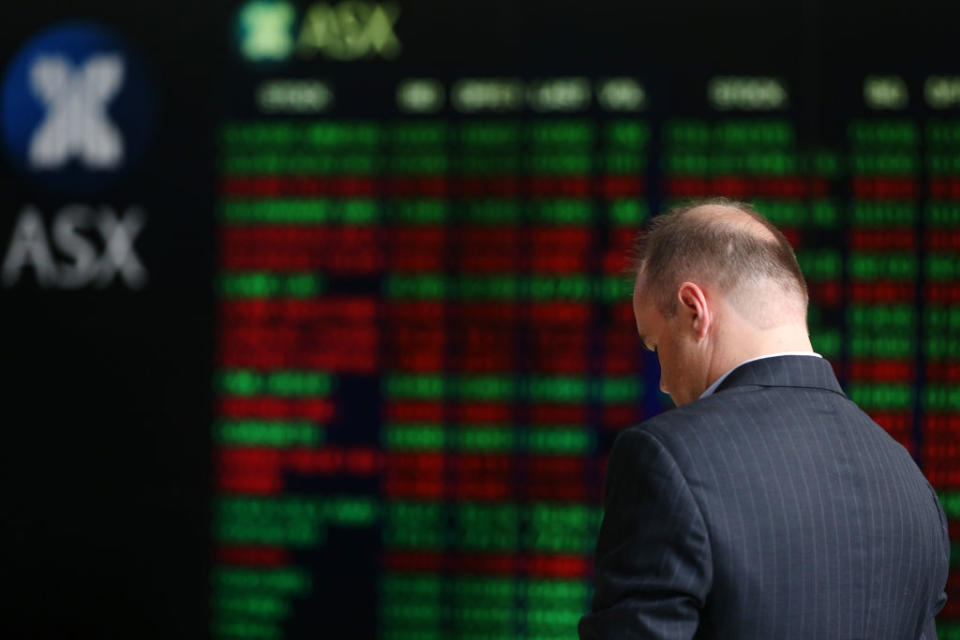1 million unemployed: The possible effects of coronavirus on the economy

The response of the economy to the coronavirus outbreak and crisis is extreme.
The list of industries, businesses, regions hit hard is long and growing by the day.
It is so extreme that the Morrison government has done a 180 degree turn on its creed to have a budget surplus and has followed the Rudd stimulus program to support the economy.
It simply had to.
It is difficult to forecast what will happen to the economy as the fall out from the virus spreads. It is changing by the week, by the day, by the hour.
More from The Kouk: ‘Rapid reverse’: Exactly how weak is the Australian economy?
More from The Kouk: Coal is dying, even if you're a climate denier
More from The Kouk: House prices shine amid economic uncertainty
Hard economic data has been published yet that incorporates the initial effects of the coronavirus so we are still, at least in part, having an educated guess at the starting point for the economy as the crisis unfolded.
Scenarios can, however, be constructed.
How deep will the recession be?
A relatively conservative scenario where GDP falls 3 per cent in 2020 and grows by 1.5 per cent in 2021 leads to some dark outcomes.
In this scenario, the unemployment rate rises to around 7.5 per cent in 2021. In terms of people, there will be over 1,000,000 unemployed. Out of a job. In financial and personal pain.
This means that annual wages growth falls to 1 per cent. Perhaps less.
It means inflation falls further, with the modelling suggesting the growth in the CPI falls below zero.
It means tens of thousands of small and medium business failures.
And things could be worse than this if the coronavirus spreads or is entrenched for a long time.
Budget facts to consider
It also means that the annual budget deficit approaches $100 billion in each of 2020-21 and potentially 2021-22.
This is because the so-called automatic stabilisers of the economy undermine tax revenue as profits (company tax), wages (pay as you go tax) and spending (goods and services tax) collapse.
It comes because the government needs a series of huge fiscal stimulus measures larger that the Rudd government policy response at the time of the global financial crisis.
It is likely that the stimulus will need to be over 5 per cent GDP over two years, or about $50 billion per annum. If it is more than this, the annual budget deficit will easily exceed $100 billion as money stays in the economy as a means to support it.
The scenario is one where gross government debt will reach $1 trillion in the mid 2020s. Such is the response needed to deal with the coronavirus and the associated economic fallout from it.
Another problem: Housing
House prices are now vulnerable to the economic shutdown.
The recent strength in house prices was a critical factor supporting household wealth, borrowing and spending. It is a reason the economy was not even weaker in late 2019 and early 2020 before the coronavirus hit the economy.
House prices are now vulnerable as unemployment rises, wages growth is crunched lower and credit stalls as banks work to support their balance sheets.
Fear is also likely to keep buyers away.
House prices are set to fall.
It is to be hoped that the price drop will be constrained by low interest rates and limited supply. People may postpone selling their houses in dire market circumstances. If the fall is limited to 5 per cent or so, the secondary effects will be reasonably benign.
If the drop is 10 per cent, or more, the impact on wealth, confidence and consumer spending will be more acute, especially if it is occurring at the same time the stock market is severely weak.
This is a scenario that compounds the depths of recession and will delay any recovery.
Moving parts
There are many moving parts to the economy, the budget and financial markets right now.
Unexpected, unforecastable events are unfolding every day. It is impossible to see how and where this will go with certainty, but that should not stop efforts being made to quantify the effects so that policies can be put in place that work to limit the damage.
What it means is that every policy should be directed to supporting the economy and stopping unemployment reaching 1,000,000 people.
And frankly, if this means the budget deficit hits $100 billion, with government debt on track to $1 trillion, so be it.
Make your money work with Yahoo Finance’s daily newsletter. Sign up here and stay on top of the latest money, news and tech news.
Follow Yahoo Finance Australia on Facebook, Twitter, Instagram and LinkedIn.

 Yahoo Finance
Yahoo Finance 